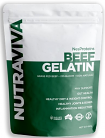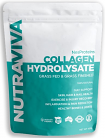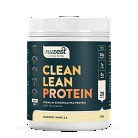Protein Powders
Protein, a molecule made up of amino acids, is utilised in the body to support and maintain muscles, tendons, ligaments, enzymes, immune functions, neurotransmitters, and energy production. Articles recommend daily intake of protein between 0.4g up to 2.5g of protein per kilogram of body weight. In clinic, we see a number of people that consume far too little protein or consume all of their protein at dinner and forget about breakfast or lunch. It is important to consume protein throughout the day (3 -5 meals) to ensure structural repair, maintenance and that energy levels remain balanced.
Food, and a great variety of it, is always the best way to achieve optimal nutrition. Meat, poultry, fish, dairy, egg (cooked), nuts and seeds are the most complete and bioavailable forms of protein. It is also advisable to complete your protein intake with a little fermented soy (tempeh), whole grains, pulses, and vegetables. Generally, all protein requirements are achieved by combining a range of animal and vegetable proteins at the same meal. If specific or individual requirements do not allow for these varieties, or you are into intensive exercise, it is possible that taking a protein supplement will help you achieve your goals in an optimal time frame.




















